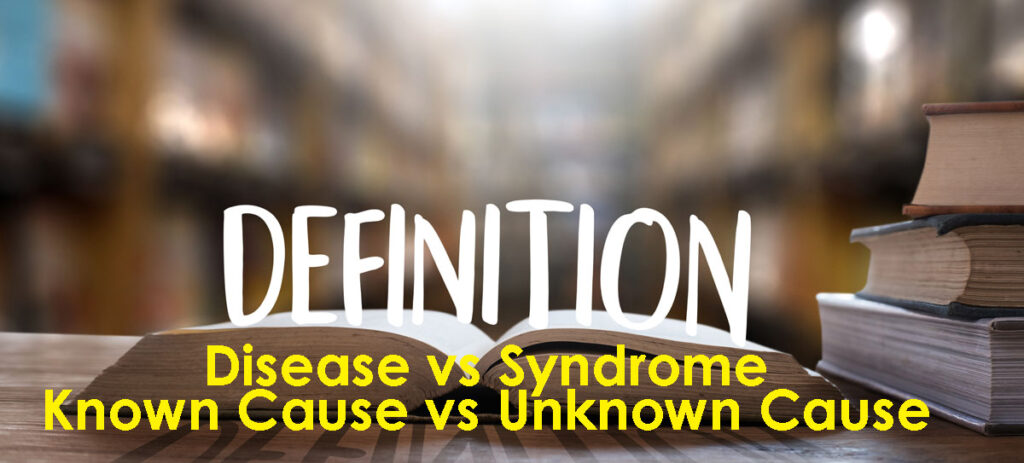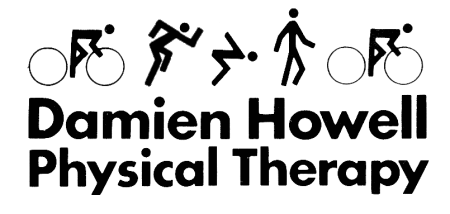Understanding the Nuances of Disease, Syndrome, & Uncertainty in Musculoskeletal Pain

Disease is a particular abnormal condition that adversely affects the structure or function of all or part of an organism and is not immediately due to an external injury.
Syndrome is a group of symptoms that consistently occur together or a condition characterized by a set of associated symptoms.
While disease and syndrome both involve abnormal health conditions, diseases typically have a known cause, whereas syndromes lack a clear cause according to Franz Calvo and colleagues.
Examples of the difference between disease and syndrome
Examples of musculoskeletal diseases are polio, osteomyelitis, rheumatoid arthritis. muscular dystrophy
Knowing the cause of a disease may provide certainty to the most appropriate intervention. Knowing the specific bacteria causing the bone infection directs which antibiotic medication is appropriate.
However, knowing the cause may not provide certainty about the most appropriate treatment.
Some musculoskeletal diseases are still ambiguous as to the most appropriate intervention. Rheumatoid arthritis is a disease of dysregulation of the auto-immune system. Choice of intervention is still ambiguous as to which is the most appropriate intervention.
Uncertainty is something that is not clearly or precisely determined, something unknown. Uncertainty implies that there is something to be certain about.
It is certain that I will die. It is uncertain when and how I will die. The connotation of uncertainty is more negative.
Ambiguity is being unclear or inexact because a choice between alternatives has not been made. Ambiguity is the quality of being open to more than one interpretation. The connotation of ambiguity is relatively positive or there is potential.
Uncertainty and ambiguity can cause unease and frustration for both patients and clinicians. The goal is to stamp out uncertainty, but not to stamp out ambiguity. Ambiguity may contain uncertainty. But they are different.
Examples of musculoskeletal syndromes are plantar heel pain syndrome, low back pain, tendonitis, and osteoarthritis (degenerative joint disease). The cause of osteoarthritis is unknown.
Lacking clear cause leads to uncertainty and ambiguity as to the most appropriate intervention for painful musculoskeletal syndromes. Injuries to the musculoskeletal system such as fractures or controlled injury of surgery are not syndromes. The cause is the trauma.
Recognizing this distinction between disease (known causes) and syndrome (unknown cause) raises skepticism when healthcare professionals claim to provide cures or corrections for musculoskeletal syndrome.
If your healthcare provider professes, he/she can cure musculoskeletal syndrome it should raise the question of whether he/she provides evidence-based care. If you think your healthcare provider is “your guy”, and is the proverbial “healthcare whisperer” when it comes to curing pain, a critical self-reflection is prudent.
When the cause of a musculoskeletal problem is uncertain figure out how to switch to ambiguity. Look for alternatives.

An alternative is to use a symptom and sign modification procedure to identify potential contributing factors. Causal factors are the direct or primary causes of an event while contributing factors are additional elements that may not be the main cause but still influence the outcome.
Using consensus best practice guidelines provides choices and alternatives to address musculoskeletal pain syndromes. Best practice is evidence-based care, patient-centered care, and collaborative care, meaning that the patient is actively engaged in their treatment.
The information on this website is not intended or implied to be a substitute for professional medical advice, diagnosis, or treatment. You are encouraged to perform additional research regarding any information contained available through this website with other sources and consult with your physician.
Damien Howell Physical Therapy – 804-647-9499 – Fax: 866-879-8591 At-Home, At Office, At Fitness Facility – I come to you, I do home visits Damien@damienhowellpt.com
